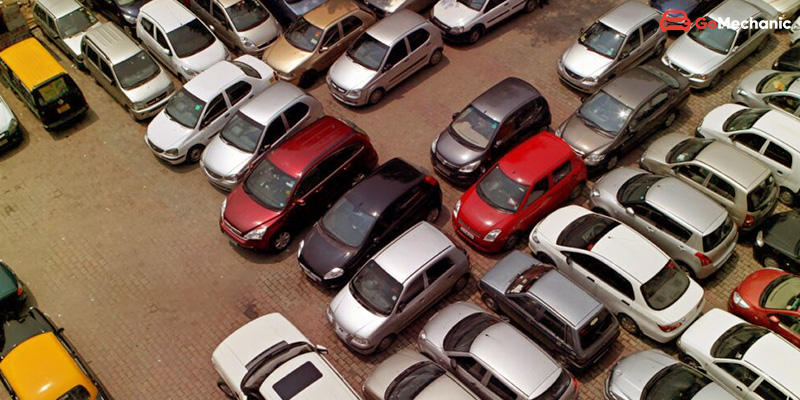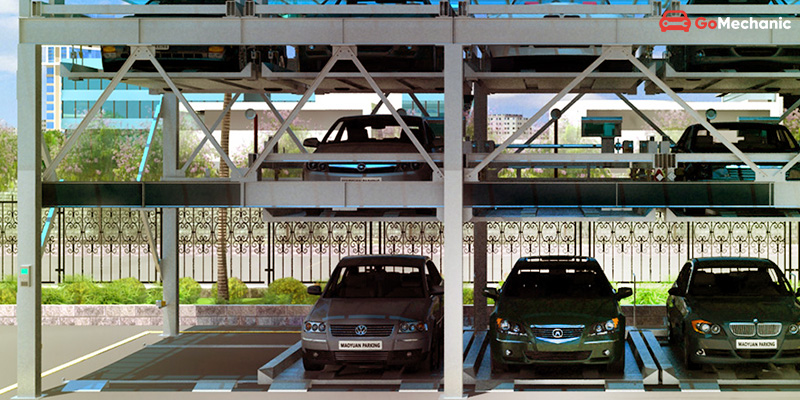The daily struggle to find car parking is a universal experience in urban areas. Cruising for elusive spots eats into our time, frustrates drivers, and contributes to traffic congestion. But there’s a ray of hope on the horizon – smart parking solutions.
This blog delves into how smart parking technologies are transforming urban mobility, tackling the challenges of limited space, inefficient utilization, and the resulting traffic woes. We’ll explore the different components of smart car parking systems, their benefits, and how they pave the way for a smoother, greener future for our cities.
Introduction
In today’s rapidly urbanizing world, the challenge of finding parking spaces in cities has become increasingly daunting. Smart car parking solutions offer a promising remedy to this persistent urban issue. These systems utilize advanced technology to optimize parking space allocation, reduce traffic congestion, and enhance the overall urban mobility experience.
A Growing Urban Car Parking Problem

As cities continue to sprawl, the demand for parking grows exponentially. However, the available space for car parks remains limited. This mismatch creates a constant struggle for drivers, leading to:
- Wasted Time and Fuel: Drivers circling for parking can spend significant time and fuel, contributing to unnecessary emissions. Studies show this “cruising” behavior can account for up to 30% of urban traffic congestion.
- Frustration and Stress: The hunt for a parking spot can be a stressful and time-consuming ordeal, negatively impacting drivers’ well-being.
- Reduced Efficiency: Businesses in congested areas can suffer as customers struggle to find parking and may opt for alternative locations.
Also Read: Essential Car Services
Innovative Car Parking Solutions

Smart car parking is an umbrella term for a range of technologies that use sensors, data analytics, and communication systems to optimize parking management. Here’s a breakdown of the key components:
- Sensors: Installed in parking spaces, these sensors detect occupied and vacant spots. Ultra-sonic, magnetic, and camera-based technologies are commonly used.
- Data Network: Sensors transmit data wirelessly to a central hub, providing real-time information on parking availability.
- Mobile Applications: Drivers can access information on available parking spaces through user-friendly apps, guiding them directly to open spots.
- Digital Signage: Interactive displays in parking areas can show real-time availability, reducing unnecessary searching.
- Payment Systems: Integration with cashless payment systems allows drivers to pay for parking fees conveniently through the app.
The Impact of Smart Car Parking: 5 Key Benefits
Smart Car parking solutions offer a multitude of advantages for drivers, cities, and the environment:
- Reduced Traffic Congestion: By directing drivers to available spots and eliminating searching, smart car parking helps to streamline traffic flow. This translates into shorter commute times, less fuel consumption, and reduced greenhouse gas emissions.
- Improved Driver Experience: The frustration of circling for parking is significantly reduced with real-time information readily available. Drivers save time and fuel, making their journeys more efficient and less stressful.
- Optimized Parking Space Utilization: Smart parking systems provide valuable data that can be used to manage parking spaces more effectively. Cities can identify areas with high demand and implement dynamic pricing strategies or designated parking zones.
- Enhanced Revenue Management: Cashless payment systems integrated with smart car parking apps allow for streamlined fee collection and improved revenue management for parking authorities.
- Data-Driven Decision Making: The data collected from smart parking systems can be used for urban planning initiatives. Analyzing parking usage patterns can help authorities optimize parking infrastructure development and improve overall traffic management.
Beyond Efficiency: Smart Car Parking for a Smart City
Smart car parking is just one piece of the puzzle in creating a smarter, more sustainable urban environment. Here are some additional ways these technologies can contribute:
- Integration with Smart City Systems: Smart parking data can be integrated with other smart city initiatives, such as traffic management systems, to create a more comprehensive approach to urban mobility.
- Encouraging Alternative Transportation: By making car parking more efficient, smart car parking could encourage a shift towards alternative transportation options like cycling, public transport, or carpooling. This can further reduce traffic congestion and improve air quality.
- Promoting Electric Vehicles: Smart parking systems can be integrated with electric vehicle charging infrastructure, providing convenient charging options for EV drivers.
The Road Ahead: Challenges and Implementation
While the benefits of smart car parking solutions are evident, there are some challenges to consider:
- Initial Investment: Implementing smart parking systems requires upfront costs for sensors, communication networks, and software.
- Privacy Concerns: Data collected by smart parking systems could raise privacy concerns. Ensuring robust data security measures is crucial.
- Public Awareness: For smart parking to reach its full potential, public awareness and education about available apps and systems is essential.
Conclusion
Smart Car parking solutions offer a promising solution to the challenges of urban parking management. By leveraging advanced technology and data-driven insights, these systems have the potential to transform urban mobility, reduce traffic congestion, and create more livable cities for future generations.





